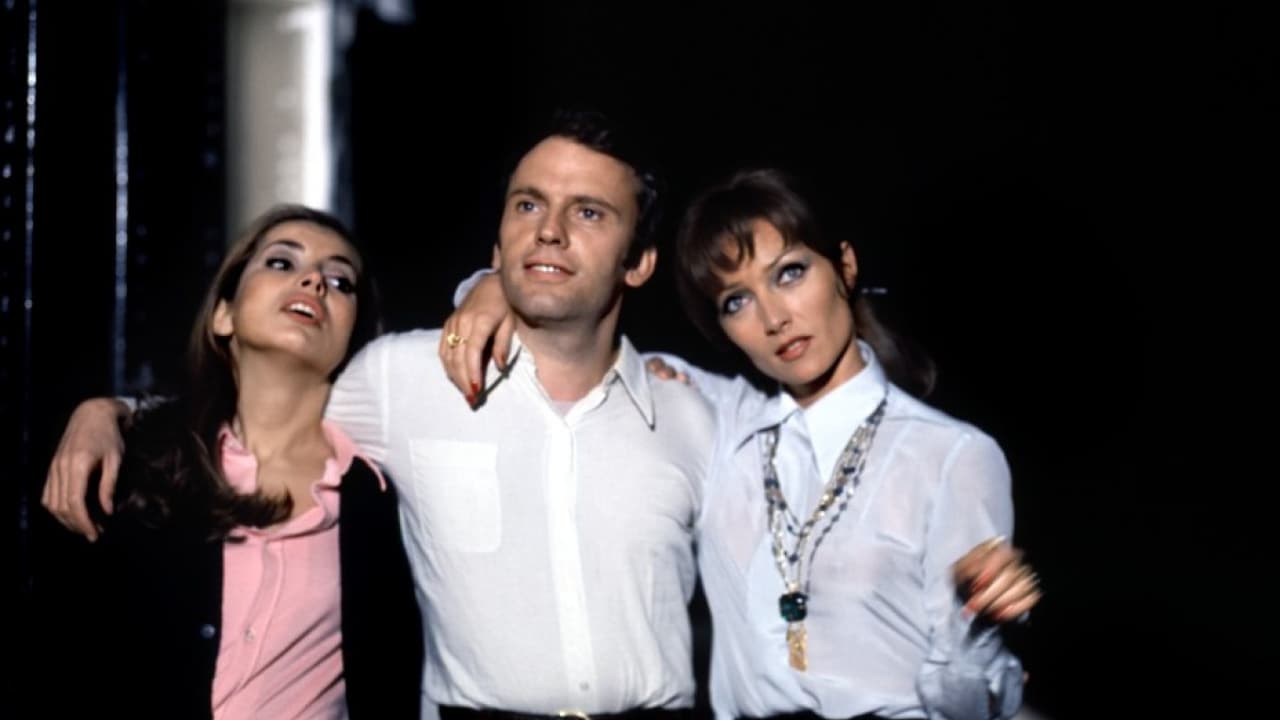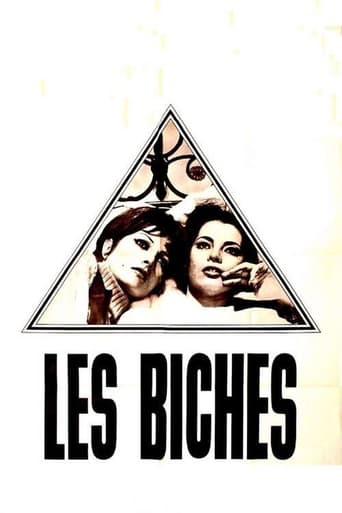ada
the leading man is my tpye
Bergorks
If you like to be scared, if you like to laugh, and if you like to learn a thing or two at the movies, this absolutely cannot be missed.
Taha Avalos
The best films of this genre always show a path and provide a takeaway for being a better person.
museumofdave
American films are usually about someone coming in to clean up the mess around them; A good many French films are about people dealing with the mess that's inside--and in Les Biches (not only "The Bad Girls" as uneasily translated, but "The Does," as in fauns) director Claude Chabrol returns to his obsession with the sexual power that one individual attempts to have over another, and like Hitchcock, with identities that fluctuate as the situation changes.Les Biches is a subtle and subversive look at two women, one rich and powerful and beautiful, and a younger street artist who draws "does" on the sidewalks of Paris, picked up by the elder to vacation with her in St. Tropez during the winter--Jean-Louis Trignitant enters as the token love interest, and quietly nasty love games ensue: Chabrol's early films do not seem to date the way most films of the 1960's do, and the only problem with this one is that is should be available in widescreen as some of his quietly elegant compositions have been hacked at the edges by some corporate type that should have known better.
gudpaljoey-677-715384
I can't help but think of this movie as a send up of the famous Abbott and Costello routine: Who's on First. The odd naming of the female character, 'Why,' who scores with the architect before her mentor is a perfect start. Why's on first, and the What makes it all the way home. The picture is ambiguous to a fault. Event the title is ambiguous. Did the film maker mean Bad Girls, baby deer, bitches, or just us girls. If it were not for the beauty of the female leads, the gorgeous setting of St. Tropez, the movie would be a total bore, about characters who can't show you who they are because they don't know themselves. The most I could make of it is that it's about a control freak who runs a menagerie of people for her amusement to fill an unfulfilled life until one day one of the wild animals gets lose to put an end to the zoo. The secondary characters, supposedly two amusing gay men, were so annoying that it stretches the imagination to see how the zoo keeper would have them around. Let's write it off as a travelogue of a hot spot on the Riviera.
lilaqueen
I don't like labeling movies with one word but I just didn't find any other words to say on this one. I watched many other Chabrol films, which I don't admire but liked and found some interesting things in them. But this one disappointed me beyond my imagination. I have to begin somewhere so let me begin with the story. Was it another criticism about bourgeoisie and telling us that the artist must be on his/her own instead of being a slave to bourgeoisie? Or was it about finding an identity in lesbian affair, there is no nudity, which was a quite a topic for '60's? Was it about commitment, passion, jealousy or the mortal love? I have to confess none of these convinced me at all. Second of all, the acting was ridiculous and the mood of the film was cold as ice. Maybe Chabrol thought that the climax could get warmer in Saint Tropez but it didn't help as well. (If you are looking for beautiful scenes of Southern France I will recommend To Catch A Thief instead with a brilliant story and directing from Hitchcock )Their acting didn't give the feeling of love, in fact any feeling at all. I patiently watched to get something from it, but the film ends with a huge nothing. I don't recommend this film to anyone, for me it is a loss of time.
vogler235
Many films uses the "Menage a Trois" element to cause disturbances in the relationship between three people. "Les Biches" uses this device to completely destroy its three characters. A perfect psychological film, "Les Biches" is the ONLY film that I know where it doesn't use Menage a Trois as a facade, but allows the film to explore its themes of Jealousy and Obsession to a sensual and extremely disturbing effect. Not even Truffaut's "Jules and Jim" used the device to this extent. This film is suited for people who loves to watch movies that will make us think, rather than movies that tells us what to think. Truly a hypnotic character study on physical and spiritual obsession. Kudos to Chabrol, his lovely wife Stephane Aubran, cinematographer Jean Rabier, and the sensuous Jacqueline Sassard for their specific roles in creating a chilling masterpiece.

